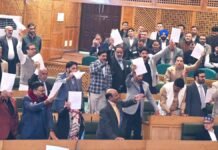
W e know both India and China are two very populous countries with ancient civilizations and the relation between the two being called Sino-Indian relations. Although the relationship has been cordial, there have been border disputes, which resulted into three military conflicts viz. Sino-Indian War in 1962, The Nathu La and Cho La clashes in 1967 and the 1987 Sino-India skirmishes, besides the 2020 standoff between the two giant countries.
However, the president of China, Xi Jinping was the top most official who visited New Delhi when Narendra Modi took over as PM in 2014 but in early 2017, there occurred a twist in their relation when the two countries clashed at Doklam plateau along the disputed Sino- Bhutanese border. Not only this, both the countries started to place military establishments along border area.
As John F. Kennedy rightly said, “It’s an unfortunate fact that we can secure peace only by preparing for war.” The 2020 Indo-China standoff is actually part of an ongoing military standoff. Since May 05, 2020, the troops of both the countries have reportedly been engaged in aggressive position and put one another in tough times near the Pangong Tso (Pangong Lake) in Ladakh and in eastern part of Line of Actual Control (LAC).
However, the standoff between the two countries became violent when in Galwan valley both the troops fought fiercely and claimed at least 20 lives of soldiers on June 15.
It’s worth to mention here that the relations between the two countries worsened after August 2019 when Government of India revoked the special status of Jammu and Kashmir.
The Galwan incident affected trade relations between the two to a large extent and GoI banned 59 Chinese apps which undoubtedly affected the economy. Not only this, it poses a severe threat to the regional peace of Asian countries including the region of Jammu & Kashmir.
People here have seen much bloodshed. Even, we became scapegoats in this bloody game of war. And, let me reiterate that war never means peace. War is always terrible.
Today they kill us, tomorrow they would get killed themselves as someone has beautifully portrayed, “Only the dead have seen the end of war.”
It reminds me of John Steinbeck who said, “All war is a symptom of man’s failure as a thinking animal.” Therefore, the best way to resolve the differences is bilateral mechanism. Yes, it’s easy to say than to be done. However, both the sides have to sign the mutual compromise, only then peace would prevail.
Follow Us
The Kashmir Pulse is now on Google News. Subscribe our Telegram channel and Follow our WhatsApp channel for timely news updates!










